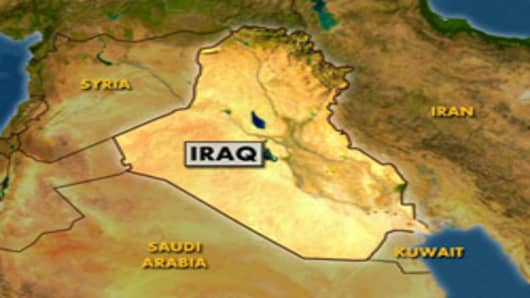If war in Iraq was largely over oil, as former Federal Reserve chairman Alan Greenspan essentially admitted, Western oil companies might have done better had they convinced the Bush Administration not to do them any favors.
This despite the recent news that Iraq is now prepared to offer technical support contracts for major Western firms including ExxonMobil,Shell,BP,Chevronand France’s Total, along with a few smaller firms.
The realities on the ground in Iraq nowadays, after a bitter five year occupation, are such that this may be the very best the oil companies can expect. The really big money which could be earned in production sharing agreements are probably no longer possible, if they ever were in a truly independent and intensely nationalistic Iraq.
“The chances of Exxon and Chevron getting a major field, a production sharing agreement are zil; I’ll go to my grave saying that I don’t care what (Iraqi Oil Minister Hussein) Shahrastani does,” says Robert Baer, a former CIA agent with extensive experience in the Middle East.
“There is no way the Iraqis are going to, in the long run, cede sovereignty for US bases, or oil production, it will be a killer for any government,” he said.
Some analysts insist the recent deals--which were supposed to be inked yesterday but were not--suggest Iraq has turned the corner and that by summer’s end Westerners will be upgrade rickety Iraqi oil fields. (They will be doing this remotely though, outside the country, directing Iraqi petroleum engineers, at least initially, just as oil executives met with Iraqi officials in Amman.)
But Baer insists this is an attempt by the Bush Administration to suggest Iraq’s return to normalcy and that increased oil revenues might finally start paying for America's continued presence, as Washington promised since the war’s beginning.
“You will see all kinds of agreements signed….. [to] keep the administration happy, but it is just a pure propaganda play,” insists Baer speaking by cell phone from his Colorado redoubt where he has just completed a new book about Iran. “I‘ve just spent too much time in Iraq and I know too much about the oil business there to think this will ever be sustained.”
Another factor too many miss, he insisted, is Iran’s effective veto on just about everything that happens inside Iraq. He says the Iranians have already put the kabosh on a number of oil deals, including several involving South Korean firms.
Iran already has its grip on roughly two-thirds of Iraq’s exports, which flow out of the southern port city of Basra, through its influence with the Shiite political parties that run things there. This helps Iran compensate for its shortage of refining capacity. After processing in Dubai, refined product is shipped to Iran at friendship prices that are in effect a considerable subsidy.
Some of Baer’s views about the industry come from friends working in Iraq, including for a company controlled by a prominent Texas oil family that has bought three oilfields in Kurdistan, he said.
Iraqi politicians have been haggling for more than a year over pending oil legislation that would determine how oil revenues, from the oil-rich Kurdish controlled north, and even richer southern Shiite controlled south, would be shared nationally, and the barren Sunni center.
The two-year oil support contracts are meant to rev up Iraqi oil output without having to wait until the parliament takes up the issue again in October. Iraqi oil officials want to boost oil production by another 1.5 million barrels per day within the next couple of years.
Currently production stands at 2.5 million barrels per day, up from 1.9 million bpd last year, and the country is believed to be able to produce 6 million bpd. With its proved reserves of 115 billion barrels Iraq is potentially the world's third largest oil producer, after Saudi Arabia and Iran.
But even the limited first step of support contracts has proved controversial in Iraq and not because they were no-bid deals or even thatState Department officials “played an integral part” in drawing up the contracts. It is because the moved seemed to confirm a deeply-held Iraqi perception that U.S. (and its Western allies) has hegemonic designs on the country’s oil.
To foreigners this may seem an overreaction and we can wonder how Iraqis can possibly think they will optimize oil production without big Western firm’s technology and capital. But then we are not Iraqis, whose history--like so many others blessed, and cursed, with natural resource wealth--has been a long series of foreign (and local) exploitation. It should be no surprise that they might have other priorities.
For this reason any Iraqi official trying to sign production sharing agreements will be signing the “end of their political future,” says Baer. “This is the most sensitive issue, other than military occupation, in Iraq: productions sharing contracts are considered looting the national treasure and to think we are going to sustain this without sheer military force is a fantasy.”
To do this “we are going to have to occupy the oil fields, we are going have to guard pipelines, and we are going to have troops there forever and I am not talking about 10,000 over 52 basses that [U.S. officials] are talking about--that does not cut in Iraq.”
Questions? Comments? energysource@cnbc.com


